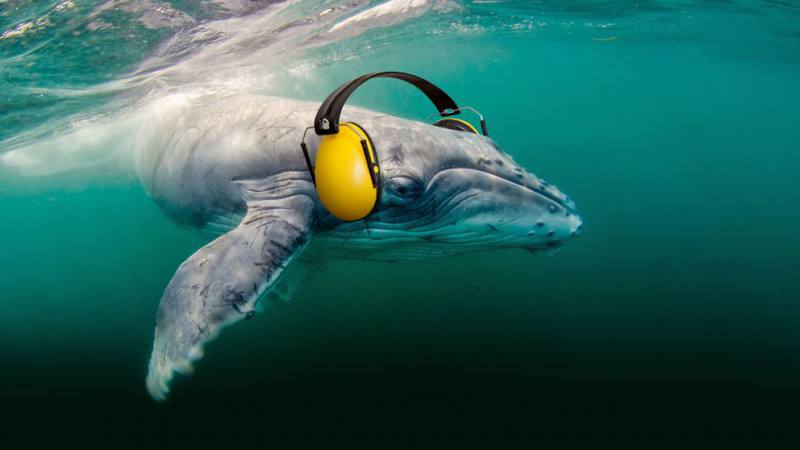Washington
The underwater noises created by human activity are on the agenda of an international meeting under the auspices of the United Nations this week in New York, a victory for NGOs campaigning for worldwide recognition of this problem still little quantified.
What are the origins of the noise?
Human noise is generated mainly by transport ships, container ships and tankers, with their engines and propellers. The explosions unleashed to dismantle the oil platforms in the sea produce the strongest sounds, but they are more unusual.
The NGOs focus on the air cannons used by oil companies to detect underwater reserves. A boat towed a cannon, and often dozens of them at the same time, sending waves to the bottom of the sea that, bouncing more or less deeply depending on the sediments and rocks, draw a 3D map of possible oil reserves.
These air cannon discharges can happen at fifteen-second intervals, in huge areas for weeks at a very high volume.
The plankton
The NGO OceanCare, based in Zurich, Switzerland, in May 115 compiled studies conducted several years ago that showed more or less serious effects on 66 species of fish and 36 species of invertebrates.
The plankton seems to be very vulnerable to air cannons. A 2017 study showed that a single low-power discharge from the cannons generally used by oil prospecting vessels could decimate half of the plankton in the explored area. Some species of zooplankton have died by 95%. Plankton is at the base of the food chain, especially for whales and many invertebrates such as oysters and shrimps.
The cod stocks
The fish can suffer internal injuries and change their behaviour, as confused by the noise, leading some to immobility and others to flee.
In the studies of 1996 and 2012, the firing of air cannons caused the flight of banks of haddocks and cod until the capture rate was reduced between 20 and 70% depending on the area. Some fish descended to areas where they were most vulnerable; others were caught on an empty stomach, an apparent sign that they had stopped feeding.
What solutions can there be?
The most direct solution would be to limit the number and intensity of acoustic surveys. But, at least in the United States, the opposite direction has been taken: the administration of Donald Trump announced the forthcoming opening of the continental shelf of the Atlantic coast to such “seismic studies” with a view, finally, to drilling.
The oil industry argues that the scientific evidence is not decisive. “In addition, seismic surveys are frequently used by the United States Geological Survey, the National Science Foundation and the offshore wind industry,” Michael Tadeo, spokesman for the American Petroleum Institute, a professional federation, told AFP.
The sector also defends itself by stating that ships take precautions, especially by throwing low-intensity shots to make the whales leave, or by ceasing their operations if the cetaceans are present.
“They are just cosmetic attempts that are probably worthless,” says Lindy Weilgart of Dalhousie University, an OceanCare consultant, to AFP.
As for the ships, a decrease in speed would reduce the volume of noise. The Port of Vancouver has been carrying out experiments to this end since last year, as part of a project called “ECHO”.
The NGOs are working so that the notion of noise pollution produced by man is included in a UN resolution on the oceans later this year.
While initially what was proposed focused mainly on the effect on dolphins and whales, NGOs want to raise awareness about the general disturbance of underwater fauna, with the possible reduction of fish populations.
“It’s really a food chain problem,” said AFP Nicolas Entrup of OceanCare. But he congratulates: “The problem of noise in the oceans is rapidly rising on the agenda, as an environmental threat.”
Source: El Universo
Baca Di sini Bro http://www.maritimeherald.com/2018/auditory-pollution-another-threat-to-life-in-the-oceans/
No comments:
Post a Comment